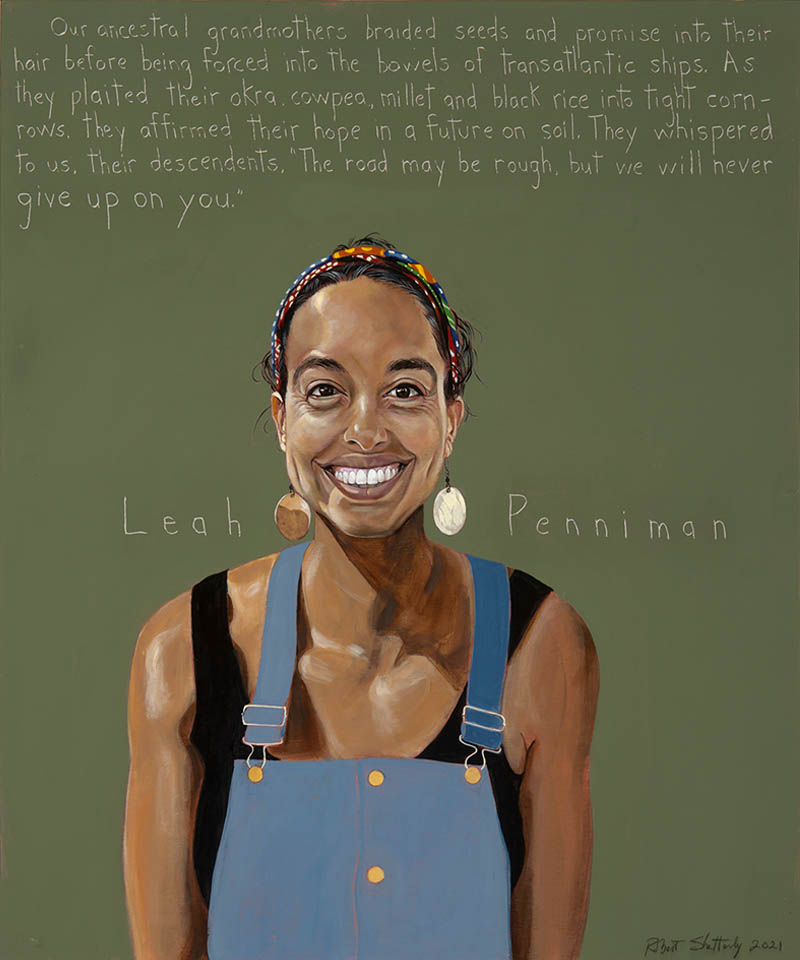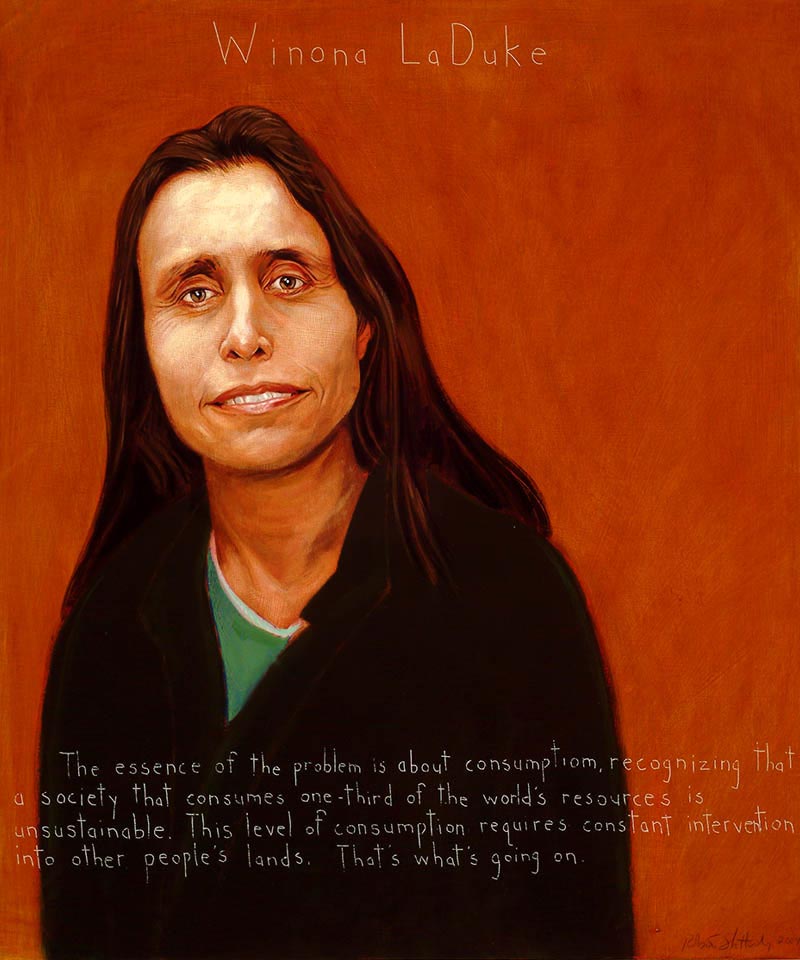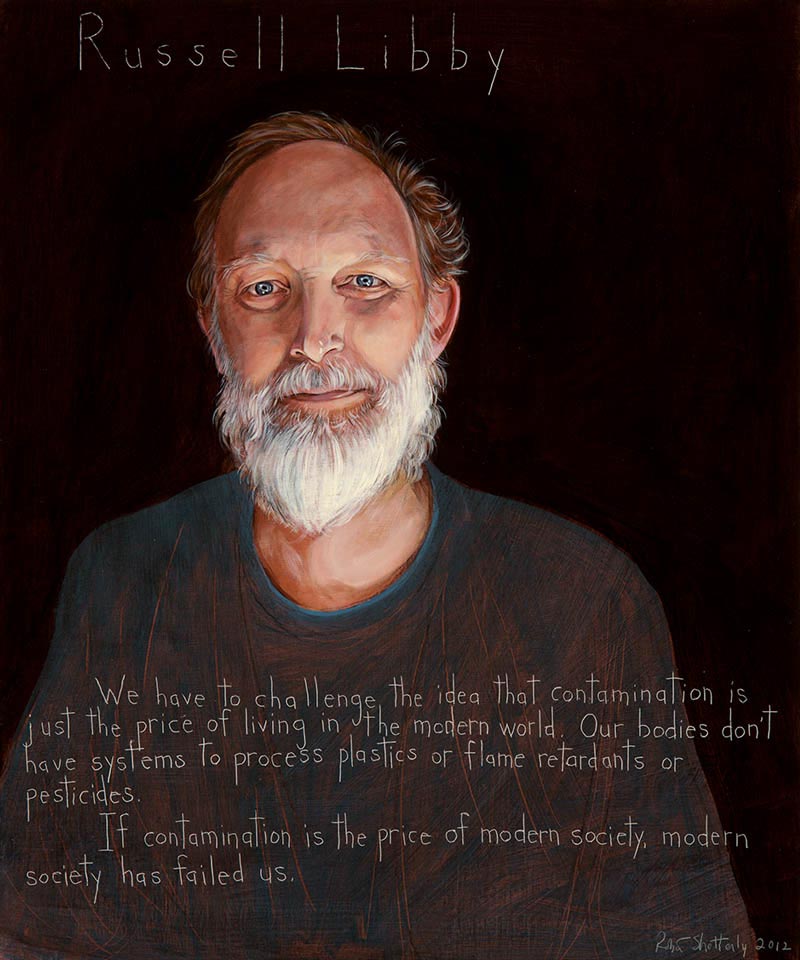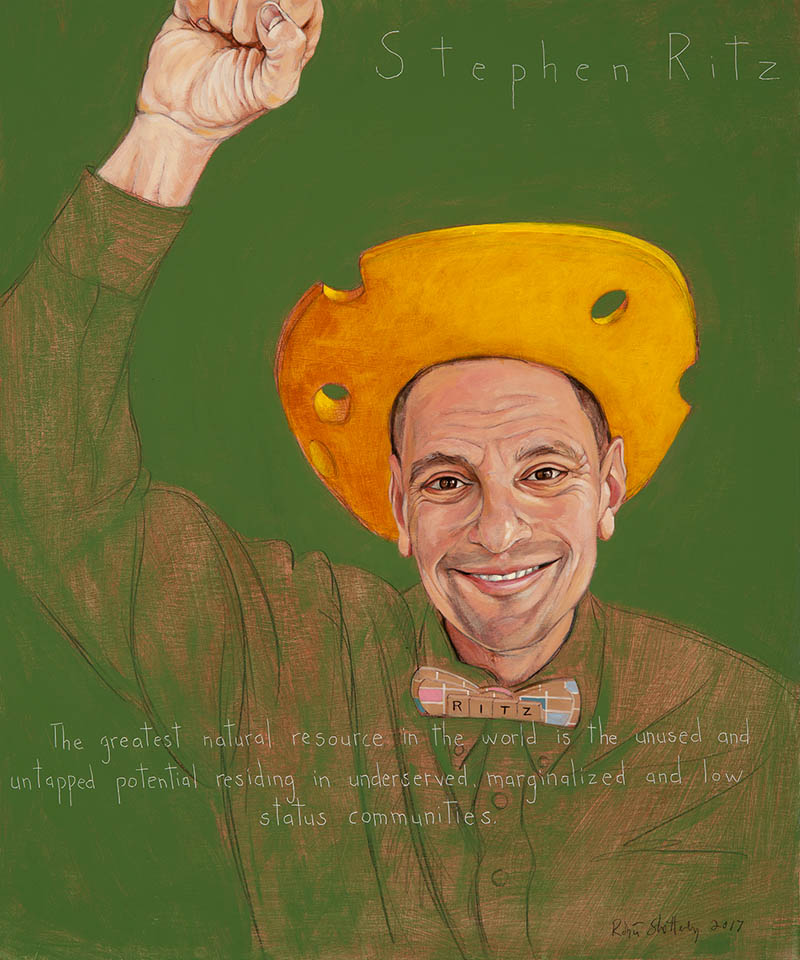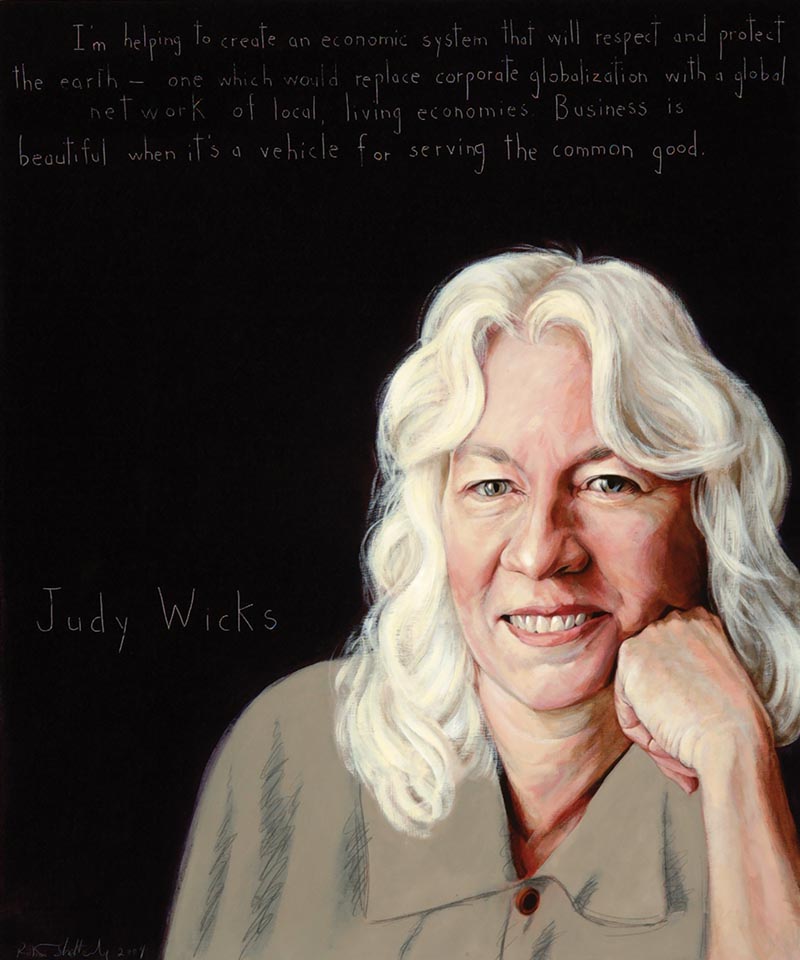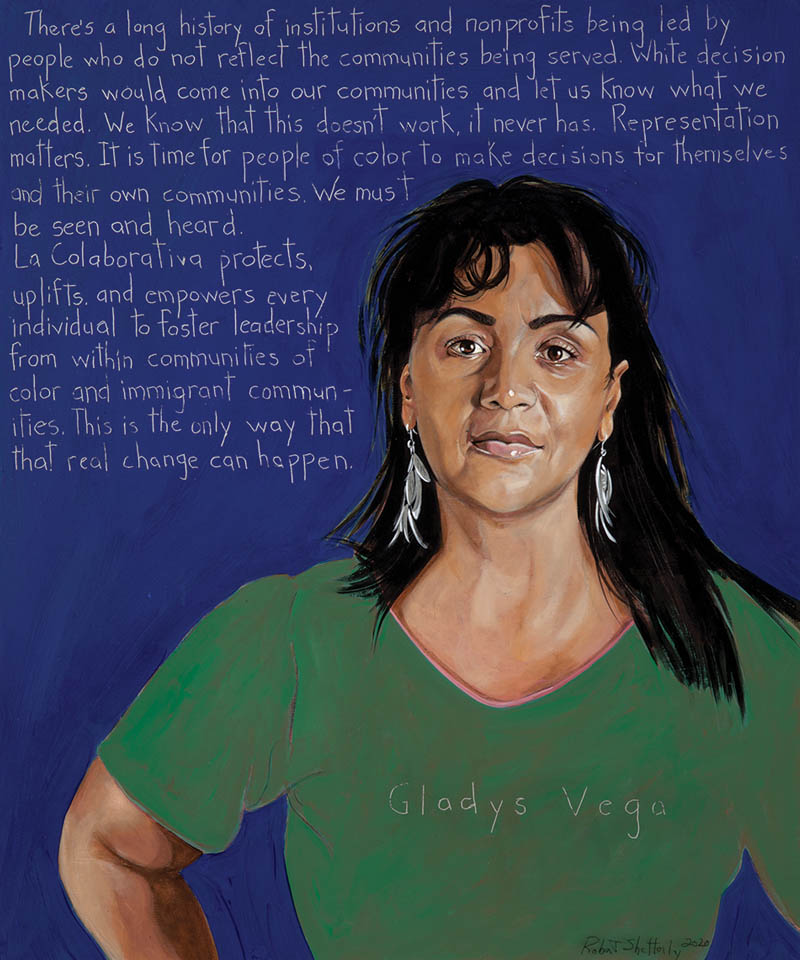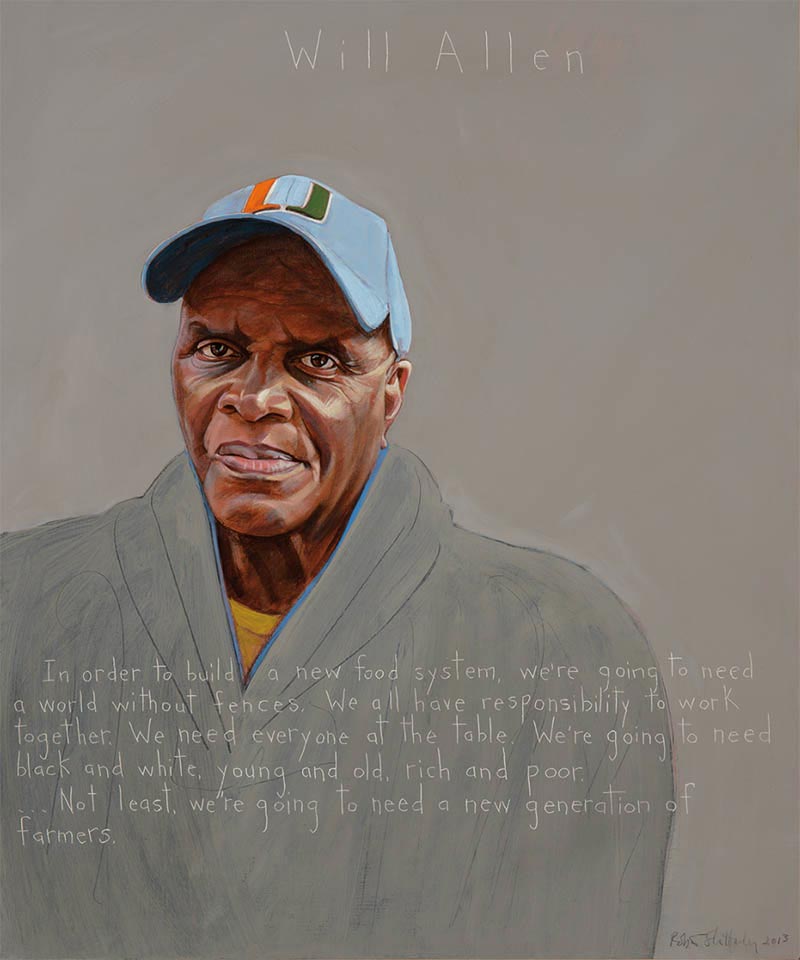
Will Allen
Former Pro Basketball Player, Sale and Marketing Executive, Farmer : b. 1949
“In order to build a new food system, we’re going to need a world without fences. We all have responsibility to work together. We need everyone at the table. We’re going to need black and white, young and old, rich and poor. …Not least, we’re going to need a new generation of farmers.”
Biography
2008: Awarded a John T. and Katherine D. MacArthur “Genius Grant”.
2010: Named by Time magazine as one of the 100 most influential people in the world.
2011: James Beard Foundation Leadership Award.
In his “Good Food Manifesto,” urban farmer Will Allen summarizes the short and long-term consequences of America’s current food system:
…Many vulnerable people, especially in the large cities where most of us live, in vast urban tracts where there are in fact no supermarkets, are being forced to buy cheaper and lower-quality foods, to forgo fresh fruits and vegetables, or are relying on food programs – including our children’s school food programs – that by necessity are obliged to distribute any kind of food they can afford, good for you or not. And this is coming to haunt us in health care and social costs. No, we are not suddenly starving to death; we are slowly but surely malnourishing ourselves to death. And this fate is falling ever more heavily on those who were already stressed: the poor. Yet there is little action
As the founder and CEO of Growing Power, Will Allen is a leader in the action he seeks. Growing Power was a pioneer farm and community food center located half a mile from Milwaukee’s largest housing project and four miles from the nearest grocery store.
After a career in professional basketball and corporate marketing, Allen used the money from his retirement fund to buy the farm in 1995. Growing Power developed into a thriving non-profit. In addition to its work in food production and distribution, Growing Power pioneered programs in education, youth programs, training programs for urban farmers and food activists, world-wide community outreach, and advocacy for food and environmental policy changes.
Will Allen was born on February 8, 1949. His parents and grandparents were sharecroppers in South Carolina. Eventually, Allen’s parents bought their own farm in Maryland, where he was expected to work hard along with the rest of the family. Every day, he counted down the minutes until the work was done and he was free to play basketball. When he graduated from high school, he was happy to leave farm work behind and vowed never to do hard labor again. In college, he was the first African-American basketball player at the University of Miami. After graduating, he went on to play professionally in the United States and in Europe.
It didn’t take long for Allen to realize that he missed farming. While playing professional basketball in Belgium, he asked the team owners if he could live somewhere with space for a garden. He grew food for his family and cooked for his teammates. At the end of his ten-year basketball career, he moved to Milwaukee with his wife, Cynthia, and their three children. To pay the bills, he began a new career in corporate marketing, working for Kentucky Fried Chicken and Proctor & Gamble. In the off hours, he operated a small farm that he worked with his family, growing healthy food for themselves and to sell at the farmers market. He remembered how much he dreaded farming as a youth, but he required his children work hard so they would learn the same important lessons he did.
When he retired, Allen hoped to bring farming and fresh-grown healthy food to Milwaukee’s most underserved areas. To get started, he bought Milwaukee’s last urban farm and an abandoned greenhouse. He created education and beautification programs for youth, teaching them how to make compost and grow plants. Over the years, the project grew into a flourishing Community Food Center that employed 120 people and raised 20,000 plants and vegetables, thousands of fish, and a livestock inventory of chickens, goats, ducks, rabbits, and bees. Groups that toured the facility witnessed six traditional greenhouses in addition to nine hoop houses (two of which are aquaponic), a type of greenhouse where the ceiling is built as a half-circle from one side of the building to the other. They allow for longer growing seasons by containing warmth under the hoop. There was also a worm depository, where worms are stored for making compost, an apiary with fourteen beehives, three poultry hoop houses with laying hens and ducks, outdoor pens for livestock including goats and turkeys, a composting operation that includes thirty pallet compost systems, an anaerobic digester that turned that farm’s food waste into biofuels, a rain water catchment system, and a retail store that sold produce, meat, worm castings for fertilizer, and compost to the community.
The remarkable thing is that all this fit onto a piece of land about the size of a small grocery store. After successfully building this resource for the people of Milwaukee, Allen lead workshops so people from other communities could learn how to build similarly efficient farms in their urban spaces.
Allen’s book, The Good Food Revolution, was published in 2012. Through his writing and teaching workshops, Allen spread his message to communities throughout the U.S. and the world. Growing Power opened satellite locations in Madison, Wisconsin and Chicago.
Allen’s work pioneering urban agriculture and healthy eating has been recognized with major awards and grants. In 2008, he won a $500,000 MacArthur “Genius” award for his work. He also received a $100,000 Ford Foundation leadership grant and $400,000 from the Kellogg Foundation to create jobs in urban agriculture.
Even while overseeing Growing Power’s massive farming operation, Allen still farmed his own land outside Milwaukee. He encourages anyone who wants to live a healthier life to grow their own food. It could start with a small backyard garden or a few potted plants.
Although Allen formally disbanded the Growing Power organization in 2017, his daughter Erika, cofounder and CEO of Operations for the Urban Growers Collective, is carrying on the family tradition and the work of food justice.
Allen believes that the good food revolution can and should be a multicultural effort. Still, it is particularly poignant that the son of a sharecropper turned farm work, a longstanding tool of oppression, into empowerment: “It will be an irony, certainly, but a sweet one, if millions of African-Americans whose grandparents left the farms of the South for the factories of the North, only to see those factories close, should now find fulfillment in learning once again to live lose to the soil and to the food it gives to all of us.”
<!–>c
<!– ______________________________________________________ Sources: The New York Times Magazine, “Street Farmer,” by Elizabeth Royce. July 1, 2009. O Magazine, “Making Fresh Food Available,” by Karen Cullotta. August 2009.–>
Related Portraits
Programs
Americans Who Tell the Truth (AWTT) offers a variety of ways to engage with its portraits and portrait subjects. Host an exhibit, use our free lesson plans and educational programs, or engage with a member of the AWTT team or portrait subjects.

Education
AWTT has educational materials and lesson plans that ask students to grapple with truth, justice, and freedom.

Exhibits & Community Engagement
AWTT encourages community engagement programs and exhibits accompanied by public events that stimulate dialogue around citizenship, education, and activism.
